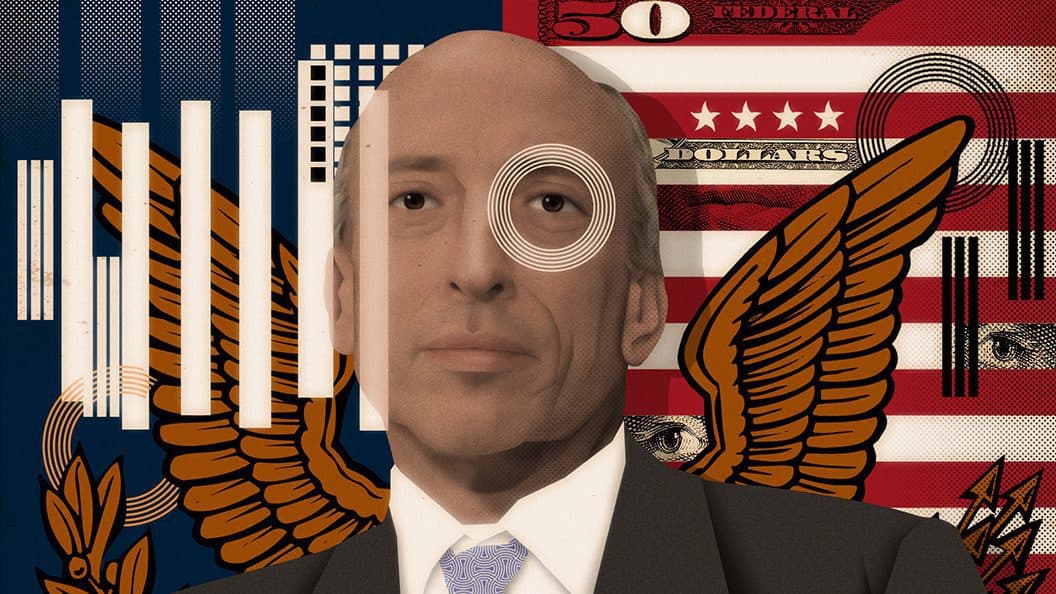Gensler Says Centralized Regulation is Path for Crypto
Gensler joined former SEC chair and current senior policy advisor at Sullivan & Cromwell Jay Clayton at the Digital Asset Compliance & Market Integrity Summit in New York Wednesday to discuss regulatory oversight of crypto

Gary Gensler, Chairman, SEC; Blockworks exclusive art by Axel Rangel
key takeaways
- Gary Gensler maintains that cryptocurrency exchanges need to follow the same rules as everyone else
- The crypto community, once a fan of Gensler, has taken a harsher view of the SEC head in recent months
US Securities and Exchange Commission (SEC) Chair Gary Gensler stuck to his guns on Wednesday, reiterating that cryptocurrency companies and exchanges will not be able to operate outside of regulatory oversight for much longer.
Gensler was joined by former SEC chair and current senior policy advisor at Sullivan & Cromwell Jay Clayton at the Digital Asset Compliance & Market Integrity Summit in New York Wednesday.
Some cryptocurrency exchanges may be flying under the radar for now, Gensler said, but these companies will have to start conducting business within regulatory frameworks soon. Cryptocurrency exchanges should be registered with the SEC just like traditional securities exchanges, he insisted.
“If you think there’s some reason that you can’t quite register as a full exchange…work with us,” Gensler said. “I think a better path for these platforms, these exchanges and lending platforms, is to work to get registered within the law.”
Clayton did not disagree, pointing out that this new asset class should, in many cases, not be exempt from existing rules.
“Just because you call this a token, doesn’t mean it’s not a security,” Clayton said.
Welcome cheerleader no more
The crypto community first saw Gensler, who took over from Clayton in April, as a welcome cheerleader for the industry.
Gensler taught a blockchain course at the Massachusetts Institute of Technology and also served as a co-director of Fintech@CSAIL, a research group that investigates disruptive technologies.
However, recent moves by the SEC have led former fans in the crypto industry to take a harsher look at Gensler. Exchange-traded fund issuers in particular have been outspoken in recent weeks following the approval and subsequent launch of the first futures-based ETFs. Failure to approve a spot-based product is inconsistent, some argue.
When pressed about why a spot bitcoin ETF has not yet been approved, Gensler declined to comment, saying he was advised by his counsel not to speak on pending matters. There are several spot bitcoin ETF filings currently sitting with the SEC.
Gensler’s education is certainly a positive, other speakers at the summit agreed, but the conversation around regulation needs to shift.
“The hope of having a staff that understood the issues? I think we got that,” Ophelia Synder, co-founder and president of 21Shares, said in a panel discussion after Gensler’s and Clayton’s fireside chat concluded. “I think the most interesting takeaway for me from that conversation was the focus on centralization as the road to regulation as opposed to finding ways to adapt regulations to a decentralized reality.”
Get the day’s top crypto news and insights delivered to your inbox every evening. Subscribe to Blockworks’ free newsletter now.






